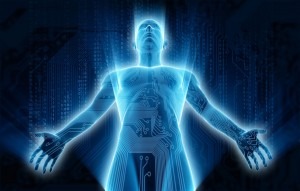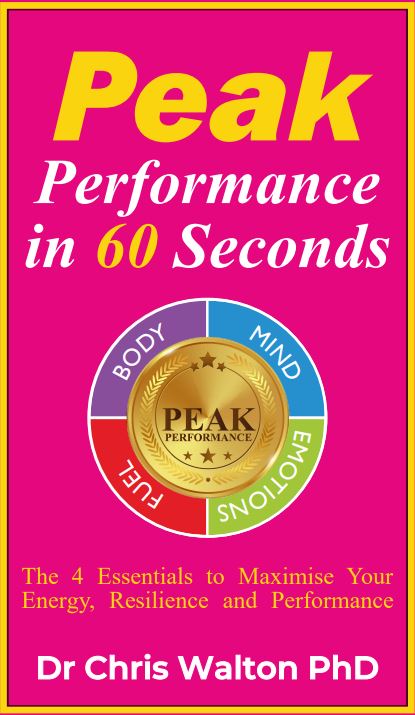Of all the wonders of the world, among the most wondrous is the human mind. The power of the mind is awe-inspiring, we tend to think of its seemingly extraordinary capacities as miraculous.
We have all heard stories about the nearly unbelievable powers of the mind: orchestrating spontaneous remissions of disease through mind-body interactions, directing the body to display Herculean feats of strength in emergencies, marshalling astonishing powers of will and perseverance during extreme hardships, erupting in insights and epiphanies that pop up out of the blue and birthing the new and the novel through displays of creativity and inventiveness.
It’s no surprise then that in those quiet moments when we ponder the meaning of life and of our place in it other than thinking perhaps how nice chocolate tastes and how stunning the sunset is, our ponderings often lead us to those deeper questions like; What is the mind? What power does my mind have?
Answering these questions has been the province of philosophers and sages throughout history, and in modern times of scientists, too. It is still orthodox scientific belief that the mind, and consciousness itself, is an emergent property of the “wet matter” of the brain, a by-product of its electro-chemical activity.
Let us be clear that this is a belief and not a scientific fact. In this chapter and others, we will explore why. And in doing so, we will delve into the newest, most provocative and exciting research and insights that help us understand not only what our mind is but also how we can use the power of our minds to transform ourselves and our lives.
We begin by jumping headlong into the scientific debate. Visionary biologist Rupert Sheldrake explained that “the theory that the mind is in the brain is a dogma based on the authority of science, and most people never think of questioning it. Few are even aware that it is a theory at all, and accept it as a scientific truth.”
In the early 1900s, British biologist Sir Julian Huxley asked the question; “Is the brain a good enough explanation for describing the mind?” His answer was emphatic:
“The brain alone is not responsible for the mind, even though it is a necessary organ for its manifestation. Indeed an isolated brain is a piece of biological nonsense as meaningless as an isolated individual”.
Whilst there is no question that the brain is crucial to the proper functioning of some aspects of the mind (since brain injury and disease can affect memory, logic, reasoning and more), other frontier scientists are telling us that the mind is not entirely dependent on the brain.
It seems to extend beyond the brain and even outside of the body: there is even very well validated evidence of the reality of a collective and global mind!
Frontier science is revealing the extent to which the mind must be thought of as an energy and information field that interpenetrates every cell of the body and spreads out beyond the body to connect to the entire cosmos and everything in it.
We’ll look at this inspiring research in later posts. For now, let’s venture only a short ways beyond the boundaries of accepted belief.
The Mind-Body Connection
So what if the brain—and by extension, therefore, the mind—was not only in the skull? Dr. Candace Pert has spent her career changing the paradigm of biology, especially as it relates to brain chemicals. She has shown how our brains manufacture certain biochemicals when we think and feel. Technically, some of these biochemicals are called neuropeptides, but she has labelled them the “molecules of emotion”.
These neuropeptides are the messenger molecules of the brain—the way our thoughts transfer themselves into molecules that then affect our entire body.
For example, if you are feeling anxiety, your body makes its own valium in just the right quantity to help calm you. If you feel exhilarated, your brain and body produce more of a molecule called interleukin 2, but when you feel overly stressed, your levels of interleukin 2 go down.
Why does that matter? Because interleukin 2 has been discovered to be a powerful immune system booster and it shows promise as an anti-cancer drug. Stress reduces its levels, compromising your immune system. Now there’s a good reason to get excited regularly!
Dr. Pert’s work and that of many others has demonstrated clearly that your mood affects your immune system directly, at the molecular level. Every thought and emotion has a biochemical equivalent. We literally have chemicals for love, anger, happiness, guilt, lust and so on.
These “molecules of emotion” were once thought to be manufactured only by the brain and nervous system. However, Dr. Pert’s research revealed they are made by many other systems in the body and they can affect every cell in the body, not just the cells of the nervous system.
The mind then is in a very literal sense a whole-body phenomena.
One of Dr. Pert’s conclusions is that the body actually is the subconscious mind. Instead of the brain being the commander and chief of the body, her work reveals that mind—our beliefs and perceptions, thoughts and emotions—commands the brain to produce the correlated molecules. It is the mind, working through the brain that organises and coordinates all the metabolic functions necessary for life and survival. To use a musical metaphor, we now have to think of the brain as the piano and the mind as the pianist playing the music throughout the body.
This is a radically different picture of the mind-brain hierarchy than most of us learned in school. Unless you have read the literature outside of the now outdated biology and medicine, and outside of the mainstream press, you won’t have realised that over the last few decades, as physician Daniel Monti has said,
“The evidence has mounted persuasively that the mind and body are inextricably connected, with our thoughts affecting our biology in ways never before thought possible. We truly are fully integrated beings.”
From the evidence amassed by frontier scientists, it is now possible to say that we truly cannot now know where the mind stops and the body begins, and vice versa.
.



